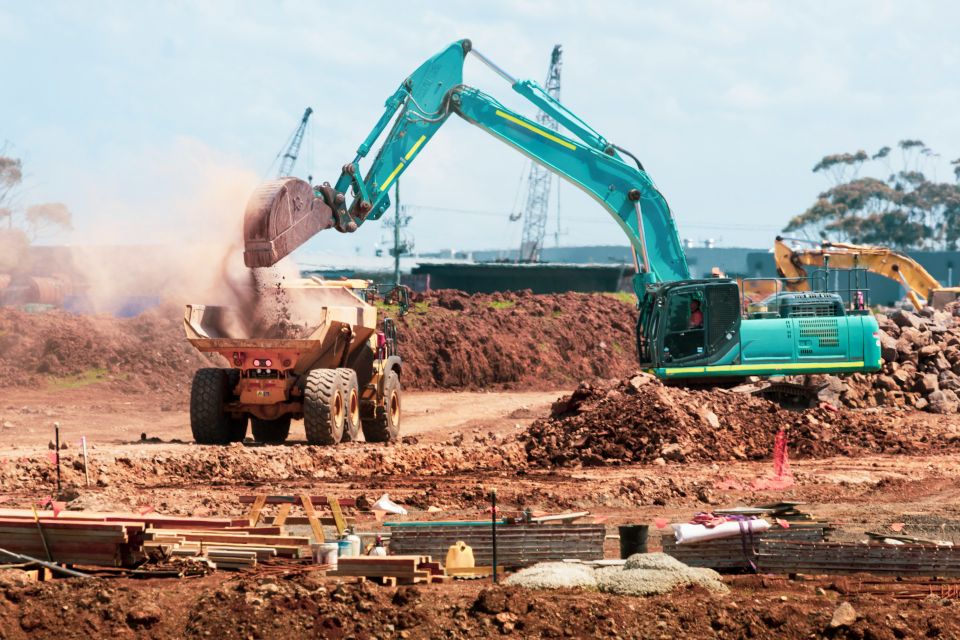Maintaining and upgrading our infrastructure is an ongoing challenge for communities and governments worldwide. As roadways and pavements undergo constant wear and tear due to traffic and environmental factors, finding sustainable and cost-effective solutions for rehabilitation becomes paramount. One such revolutionary method is Full-Depth Reclamation (FDR), which offers an innovative approach to roadway restoration by recycling existing pavement materials into a revitalized, stabilized base layer.
In this in-depth blog, we will uncover the potential of Full-Depth Reclamation techniques, highlighting their advantages, applications, and best practices for successful implementation. Additionally, we will showcase how partnering with Terra-Firma Stabilization & Reclamation, a leader in Asphalt Pulverization, Soil Improvement & Modification, Soil Stabilization, and Full-Depth Reclamation, can significantly improve your infrastructure rehabilitation and pavement management efforts.
Revitalizing Infrastructure with Full-Depth Reclamation Techniques1. An Overview of Full-Depth ReclamationFull-Depth Reclamation (FDR) is a unique pavement rehabilitation technique that involves pulverizing the existing pavement and underlying base layers, mixing the fragmented materials, and modifying the resulting material to create a stable, durable foundation for new pavement. The main components of FDR are:
a. Pulverization: Existing pavement and base layers are mechanically pulverized, reducing them to smaller, easily workable aggregate particles.
b. Material Incorporation: Additional stabilizing agents, such as cement, lime, asphalt emulsions, or foamed asphalt, may be introduced into the pulverized material to enhance the properties of the recycled mix.
c. Compaction and Grading: The reclaimed material is recompacted, reshaped, and graded to achieve the desired elevation and contour.
d. Surface Preparation: A new surface layer, such as asphalt or concrete, is applied over the reclaimed base to provide a durable, long-lasting pavement.
2. Advantages of Full-Depth ReclamationOpting for Full-Depth Reclamation techniques can deliver numerous benefits in infrastructure projects, including:
a. Cost Savings: FDR reduces the need for new, costly materials and minimizes waste disposal, leading to lower overall project costs.
b. Time Efficiency: The FDR process streamlines pavement rehabilitation, decreasing project timelines and roadway closures.
c. Resource Conservation: By recycling existing materials, FDR promotes more sustainable construction practices and reduces the demand for virgin resources and aggregate mining.
d. Enhanced Pavement Performance: The improved foundation layer created through FDR offers better pavement strength, load-bearing capacity, and resistance to environmental stressors.
3. Applications of Full-Depth Reclamation TechniquesFull-Depth Reclamation techniques are widely versatile and find applications in various infrastructure projects, such as:
a. Roadway and Highway Rehabilitation: FDR is an ideal solution for restoring the structural integrity of aging or damaged roadways and highways, allowing for long-lasting and cost-effective improvements.
b. Parking Lots and Commercial Areas: Full-Depth Reclamation can address deteriorating pavements in parking lots, commercial areas, and industrial zones, improving functionality, aesthetics, and safety.
c. Residential Streets: FDR provides an efficient alternative to traditional road resurfacing techniques in residential areas, significantly enhancing pavement performance without disrupting local communities.
d. Airfield Pavements: The robust and stable reclaimed base layers created through FDR are well-suited for airfield pavements, offering an effective solution for runway and taxiway rehabilitation projects.
4. Best Practices for Implementing Full-Depth ReclamationTo achieve optimal results with Full-Depth Reclamation, construction professionals should adhere to the following best practices:
a. Comprehensive Site Evaluation: Assess all aspects of the project, including pavement condition, traffic loads, environmental factors, and availability of resources, to determine the appropriateness of FDR for the specific infrastructure scenario.
b. Material Testing and Stabilizing Agent Selection: Conduct thorough laboratory testing to evaluate the properties of existing pavement materials and identify the most suitable stabilizing agents that enhance the reclaimed mix's performance characteristics.
c. Proper Pulverization and Mixing: Ensure that all layers are uniformly pulverized and thoroughly mixed so that stabilizing agents are evenly distributed, paving the way for maximum strength development.
d. Quality Control and Monitoring: Implement strict quality control measures and continually monitor the FDR process to avoid errors, validate material consistency, and adhere to project specifications.
Transforming Infrastructure with Full-Depth Reclamation SolutionsFull-Depth Reclamation is a powerful technique capable of revitalizing aging infrastructure while conserving resources, reducing costs, and promoting sustainable construction practices. Understanding the principles, benefits, and applications of FDR and applying best practices can significantly enhance the rehabilitation of pavements and other infrastructure assets.
Partner with Terra-Firma Stabilization & Reclamation, a leader in Asphalt Pulverization, Soil Improvement & Modification, Soil Stabilization, and Full-Depth Reclamation, to access our specialized knowledge and experience in Full-Depth Reclamation. Our commitment to excellence in providing tailored FDR solutions ensures outstanding results that improve infrastructure resilience, longevity, and sustainability.
Reach out to Terra-Firma Stabilization & Reclamation today to learn how our
Full-Depth Reclamation services can help you transform your infrastructure projects and experience the numerous benefits of this innovative and eco-friendly rehabilitation technique.

